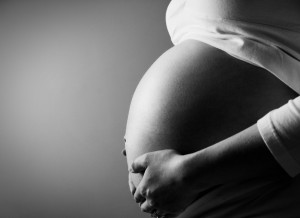
The study, led by Dr. Ian Macumber, a pediatric nephrology fellow at Seattle Children’s Hospital, looked at medical charts, including birth and hospital discharge records, from 2003 to 2012 in the state of Washington. Over 3,200 cases of kidney or urinary tract abnormalities were found and compared to more than 13,000 newborns without these abnormalities.
A correlation (not cause and effect) was discovered between maternal obesity and this type of birth defect.
“Our findings add to the public health importance of obesity, particularly as a modifiable risk factor,” said Macumber to Medical Xpress. “The data supplement the literature regarding obesity’s association with congenital abnormalities and highlight the importance of future research needed to clarify the mechanisms of these associations.”
Mothers who delivered children with the birth defects were almost 1.3 times more likely to be obese than those whose infants didn’t have these conditions. The researchers also found a trend between the likelihood of CAKUT in children and higher categories of obesity. Thus, women who are overweight (a body mass index between 25-29) rather than obese (body mass index of 30 of greater) were not linked with CAKUT in children.
CAKUT is diagnosed in up to 1 percent of pregnancies and account for 20 percent to 30 percent of prenatal abnormalities.
This recent finding backs up older studies of prenatal risk factors that put children at risk for kidney disease. Dr. Christine Hsu from the University of Washington studied nearly 2,000 patients with childhood chronic kidney disease (CKD) in over 20,000 hospital records from 1987 to 2008 and found that infants were also at an increased risk if their mothers developed diabetes during pregnancy or if their mothers were overweight or obese.
Black women have the highest rates of obesity and being overweight compared to other women in the United States. About one in five women who gave birth from 2004 to 2005 in the United States was obese, and Black women and those with public health insurance had a higher prevalence than women in other categories.
Currently, the mechanism behind this correlation is unknown. But from a public health standpoint, mothers should be aware of how critical diet and exercise are for their children’s health. The American College of Obstetricians and Gynecologists estimates that more than half of pregnant women are overweight or obese and are at an increased risk of several pregnancy complications.
Nov. 11–16 is National Kidney Week. The findings are to be presented at the annual meeting of the American Society of Nephrology on Nov. 14 in Philadelphia.
S.C. Rhyne is a blogger and novelist in New York City. Follow the author on Twitter @ReporterandGirl, http://Facebook.com/TheReporterandTheGirl and visit her website at http://www.SCRhyne.com

